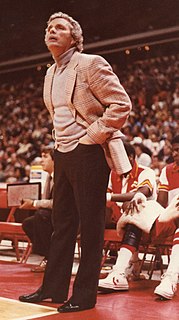A Quote by Philip Kitcher
I use biography, I use literary connections (as with Platen - this seems to me extremely helpful for appreciating the nuances of Mann's and Aschenbach's sexuality), I use philosophical sources (but not in the way many Mann critics do, where the philosophical theses and concepts seem to be counters to be pushed around rather than ideas to be probed), and I use juxtapositions with other literary works (including Mann's other fiction) and with works of music.
Related Quotes
Sometime during the 1990s, when I was teaching philosophy at UCSD, my friend, colleague, and music teacher, Carol Plantamura, discussed the possibility of teaching a course together looking at ways in which various literary works (plays, stories, novels) had been treated as operas, and how different themes emerged in the opera and in its original. One of the pairings we planned to use was Mann's great novella and Britten's opera. Unfortunately, the course was never taught, but the idea remained with me.
Mann and Joyce are very different, and yet their fiction often appeals to the same people: Harry Levin taught a famous course on Joyce, Proust, and Mann, and Joseph Campbell singled out Joyce and Mann as special favorites. To see them as offering "possibilities for living", as I do, isn't to identify any distinctive commonality. After all, many great authors would fall under that rubric.
Read Mann's notes, which contain precise accounts of cholera and its symptoms, and observe how careful he is throughout his fiction in getting medical details straight - then you might begin to wonder whether cholera is the only candidate for the cause of Aschenbach's death. What results from this, I think, is a deeper appreciation of Mann's brilliance in keeping so many possibilities in play. The ambiguity is even more artful than people have realized.
As I read Mann in German for the first time, the full achievement - both literary and philosophical - of Death in Venice struck me forcefully, so that, when I was invited to give the Schoff Lectures at Columbia, the opportunity to reflect on the contrasts between novella and opera seemed irresistible.
In the end, we learn about the most basic philosophical questions - like "How to live?" - from a broad mixture of sources, including literature and philosophy, history and anthropology. These sources can guide our reflections on our own experiences, as we explore and reconsider. Mann contributed to such explorations in a distinctive way, and I hope my book brings that out.
Presenting Aschenbach as a composer - based on Mahler - leads to some dreadful scenes (especially those in which Aschenbach is berated by his student), and it surely distorts the character Mann created. Yet, we know that Mann's novella was based on a holiday in Venice he took with his wife and brother, and that while he was there he followed the reports in the German newspapers, describing the dying Mahler's progress as he returned from New York to Vienna.
Consider the different narrative styles within the story, and the glee with which the "moralistic narrator" celebrates Aschenbach's fall - maybe, then, this is a hostile verdict and the international fame is warranted after all (given that Mann modeled his protagonist so closely on himself, it would be quite odd if he had intended Aschenbach's literary inferiority to be a fixed part of the interpretation).
I found a deep kinship between Mahler's recurrent attempts to confront all sides of life and to affirm himself in the face of his own finitude, and Aschenbach's dedication to persevere in the literary evocation of beauty. Exploring this kinship led me to reflect on many of Mahler's songs and symphonies - and particularly his great masterpiece, Das Lied von der Erde. The end result was a way of reading Mann that I hadn't originally anticipated at all.



















